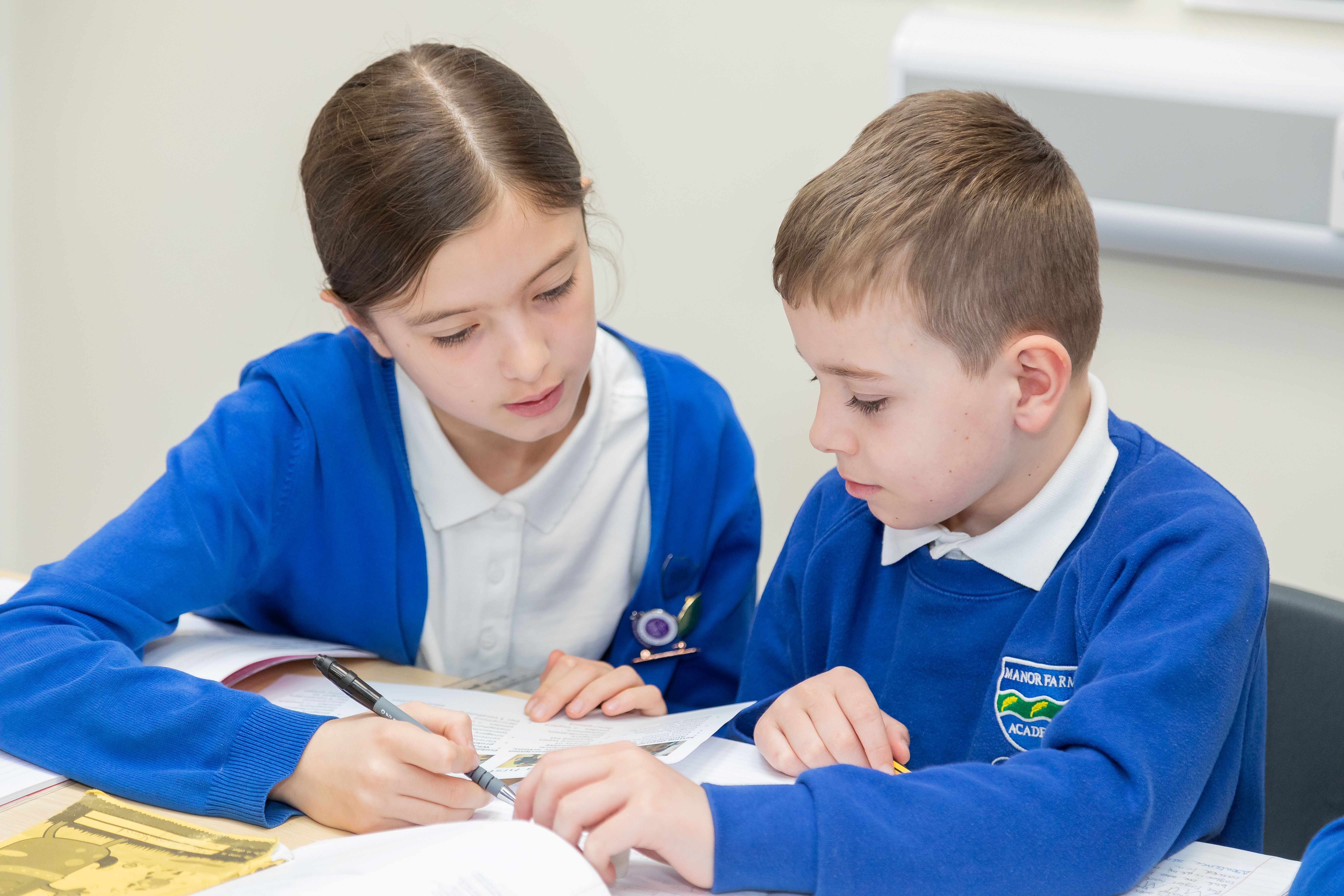
We encourage our pupils to play a positive role in contributing to the life of the school and the wider community in so doing we develop their sense of self worth. We teach them how society is organised and governed. We ensure that they experience democracy, and that they develop an understanding of traditional British values, including the rule of law. We teach them about rights and responsibilities. They learn to appreciate what it means to be a positive member of a diverse multicultural society.
The knowledge, skills and understanding will be taught in 4 interrelated sections:
Within our PSHE curriculum, our drug education programme aims to:
At Manor Farm Academy, we believe that effective sex and relationship guidance is essential if children are to make responsible and well informed decisions about their lives. The key objective of sex and relationships education is to help and support our children through their emotional, moral and physical development.
Sex and Relationship education is a lifelong learning about physical, moral and emotional development. It is about the understanding of the importance of family life, including marriage, stable and loving relationships, respect, love and care. It has three main elements:
Our provision for Spiritual development uses an approach to teaching that embodies clear values and enables pupils to gain understanding through reflection on their own and others’ lives and beliefs. It relies on teachers valuing pupils’ contributions and thoughts across the whole curriculum. Religious Education and Collective Worship also make a significant contribution to this aspect.
The moral development of our pupils is built upon a framework of values regulating personal behaviour through principles rather than through fear of punishment. At Manor Farm Academy, we therefore foster values such as honesty, fairness, and respect for truth and justice. Pupils are equally given the opportunity to express themselves, explore realistic scenarios and extend or challenge their understanding of moral development.
Our provision for social development centres around the acceptance of group rules and the ability to operate in a wider social context. Therefore, we believe that the formation of attitudes to enable good social behaviour and self-discipline is of crucial importance. Throughout the wider curriculum, opportunities are continually provided for pupils to work co-operatively and in competition, taking the initiative, and accepting responsibility for their contribution to academy life.
Cultural development is promoted via the participation in and appreciation of cultural traditions. The school seeks to enrich pupils’ knowledge and experience through visits to museums or religious buildings, art galleries and work with artists or performers. Additionally, links are made with schools in culturally diverse locations to further broaden pupil understanding of the concept.
Philosophical discussions within the academy form a significant vehicle for the promotion of all of the aspects outlined above.
We believe that a core purpose of any educational establishment should be to enable pupils to become valued members of their community and effective citizens, able to make a valuable contribution to the world in which they live. As a result of our beliefs, we have established a wider range of provision designed to fulfil this philosophy.
Life Sim: Practical Skills
Pupils participate in termly ‘Life Simulation Sessions’ as part of a structured approach to real-world learning. The sessions present pupils with real-life scenarios and challenges they may face throughout their early lives. For example, self-care, dealing with difficult relationships, and making their own bed!
Understanding British Values
At Manor Farm Academy, we actively promote the fundamental British values of democracy, the rule of law, individual liberty, and the mutual respect and tolerance of those with different faiths and beliefs. Our curriculum values promote tolerance of and respect for people of all faiths (or those of no faith), races, genders, ages, disability and sexual orientations. This is delivered through the effective spiritual, moral, social and cultural development of pupils, PSHE, Philosophy sessions, and collective worship offered within the academy.
General Knowledge
We value the development of knowledge, and recognise the importance of knowledge in enabling pupils to access the world around them. General knowledge is developed through curriculum content and the environment in which the children are taught.
The development of thinking skills is critical in helping pupils to take ownership of their own destiny. Thinking skills are the mental processes that we apply when we seek to make sense of experiences we have had. This is a valuable skill, as better thinking helps us to learn more from our experience and makes better use of our intelligence.
It has always been the central aim of education to improve the quality of thinking because better thinking will not only enable us to become more successful at learning but will also equip us for life, enabling us to realise our own potential and to contribute to the development of society. At Manor Farm Academy, philosophy is used to challenge pupil thinking in relation to the following core areas:
Collective worship must be part of a “broadly balanced curriculum which promotes the spiritual, cultural, mental and physical development of pupils and prepares such pupils for the opportunities, responsibilities and experiences of adult life”.
At Manor Farm Academy, themes for collective worship are planned each term, taking account of the ages, abilities and backgrounds of pupils. Themes for collective worship contribute to the spiritual, moral and social and cultural development of pupils, promote fundamental British values, and deal with personal development and relationships within a variety of social contexts. Where there is an issue of immediate relevance, the planned theme will be postponed and the current issue addressed. Assemblies on Mondays and Fridays celebrate collective and individual achievements.
Visits and visitors will be used for special services, celebration and festivals. Collective worship will at times be led by visiting clergy, Christian groups, as well as the headteacher, staff and pupils.